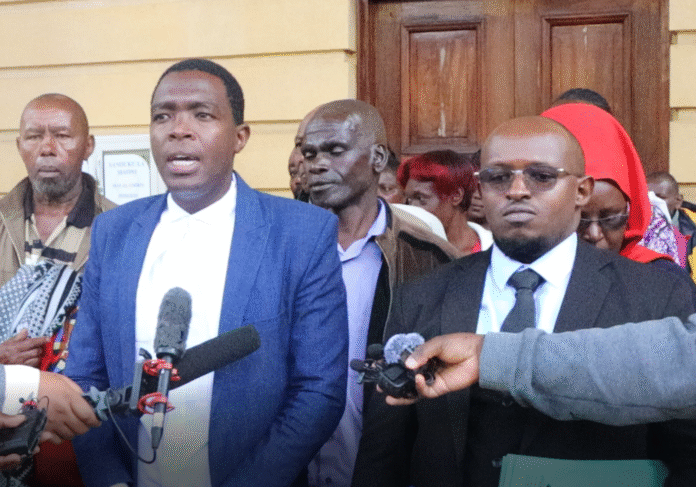By Andrew Kariuki
A Kenyan advocate, Kelvin Mugambi Kubai, has filed a class action petition before the Environment and Land Court in Milimani, seeking to ban more than ten commonly used agrochemicals over alleged health and environmental risks.
The case, filed together with the African Centre for Corrective and Preventive Action, names major pesticide manufacturers and distributors; including Monsanto Kenya, Bayer East Africa, Syngenta East Africa, BASF East Africa and Twiga Chemicals Industries alongside several government agencies such as the Pest Control Products Board, Ministry of Agriculture and the Ministry of Health.
The petition challenges the continued registration and sale of farm chemicals containing glyphosate, paraquat, imidacloprid, chlorpyrifos, thiamethoxam, malathion and other active ingredients already banned in multiple jurisdictions for their toxicity to humans, animals and pollinators.
Kubai argues that the unrestricted circulation of such pesticides violates Article 42 of the Constitution, which guarantees every person the right to a clean and healthy environment, and Article 46, which protects consumers’ health and economic interests.
“Kenya does not have the luxury of a healthcare system that can rely on curative care,” said Kubai. “Our best chance is preventive care, ensuring Kenyans are accorded food of acceptable quality from the soil to the table.”
The petition cites evidence from international health agencies, including the World Health Organization (WHO) and the International Agency for Research on Cancer (IARC), which have classified glyphosate as a probable carcinogen and identified paraquat as highly toxic.
According to court filings, some horticultural exports from Kenya have been rejected by the European Union for exceeding permissible pesticide residue limits. The petitioners claim this not only endangers Kenyan consumers but also undermines farmers’ livelihoods and the country’s agricultural reputation.
The petition urges the court to order the withdrawal of the listed chemicals, direct regulators to review all pesticide registrations, and compel the government to promote safer bio-based alternatives already in use by ecological farmers.
The case is one of the first environmental class actions in Kenya challenging multinational agrochemical corporations over alleged systemic poisoning of soils, water sources and food supplies.



















